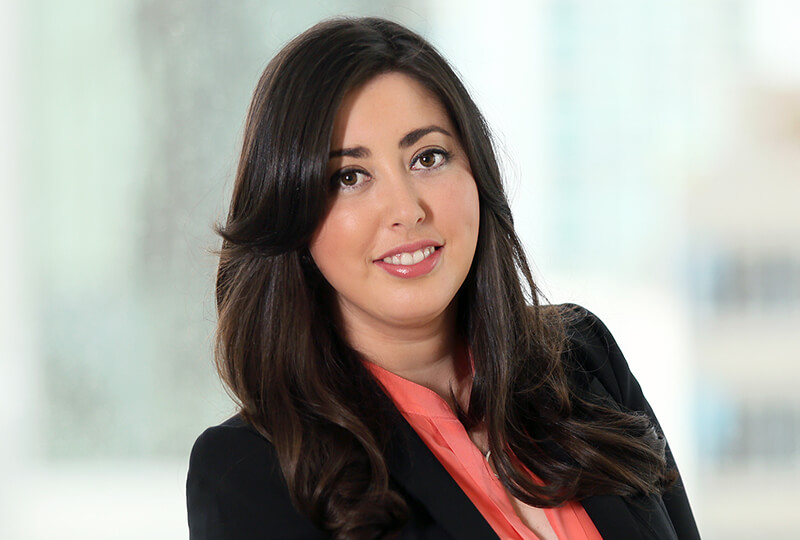Latest Verdict Against Autonomous Vehicle Manufacturer Will Embolden Plaintiffs with Similar Claims
-
Étude de marché 17 septembre 2025 17 septembre 2025
-
Technologie et évolution de l’IA
-
Assurance et réassurance
In conversations with friends, I will hear them espouse on the benefits of driving a car with self-driving technology. Usually, I’ll hear them say something along the lines of “It’s great, I set it, and I don’t have to do anything anymore.”
Knowing what I know about autonomous vehicle regulation and litigation, I usually respond by warning them to be careful because the technology isn’t perfect and they need to pay attention to intervene in case it fails. The response is generally, “Trust me, I use it all the time, the vehicle doesn’t need me at all.”
This general consumer attitude was the basis of the latest verdict against Tesla, Inc. in the US District Court for the Southern District of Florida. A jury awarded USD 329 million to two plaintiffs in a wrongful death and personal injury claim. The jury awarded USD 129 million in pain and suffering damages and USD 200 million in punitive damages to the Plaintiffs.
Plaintiff’s counsel argued Tesla oversold the capabilities of Autopilot, leading the driver of a Model S sedan to take his eyes off the road as he approached a T-intersection in the Florida Keys after sundown. The Tesla failed to stop at the intersection and collided into a parked SUV, killing one person and injuring another. The Tesla was traveling at 62 miles per hour just before the crash, according to data cited at trial. The “driver” of the Tesla disengaged the Autopilot by pressing the gas after he dropped his cell phone and was distracted looking for it. This would have triggered a message that the cruise control would not brake, which the driver ignored. The jury found the driver 67% at fault, but he had previously settled out of the case. Tesla was found 33% at fault.
This lawsuit is not the first of its kind, in California, Justine Hsu sued Tesla over the safety and reliability of Tesla's Autopilot technology. Hsu, a California resident, sued Tesla for alleged negligence, misrepresentation, and breach of contract following a crash in which her Tesla Model S swerved into the center median while on Autopilot, causing severe injuries. The jury found Tesla not liable for the crash. The case of Micah Lee v. Tesla involved a fatal crash in 2019 where a Tesla Model 3 veered off the road, collided with a palm tree, and burst into flames. The crash resulted in the death of the driver, Micah Lee, and severe injuries to two passengers, including an 8-year-old boy. The lawsuit sought USD 400 million, including punitive damages, but the jury found in favor of Tesla. There have been several other lawsuits with similar allegations across the country.
Technology is constantly evolving and so are the standards for safe operation. Autonomous vehicle legislation has been stalled at the federal level for some time. The federal regulations for autonomous vehicles in the United States are primarily governed by the National Highway Traffic Safety Administration (NHTSA), which outlines safety standards, testing guidelines, and deployment policies to ensure safe operation on public roads. On April 24, 2025, US Transportation Secretary Sean P. Duffy announced a new NHTSA Automated Vehicle (AV) Framework as part of the Department of Transportation’s (DOT) agenda to promote domestic innovation. However, regulation at the federal level has been slow. This has led states to enact their own patchwork of laws. The effect in litigation is we will see inconsistent verdicts and appellate decisions across different jurisdictions.
What the latest verdict tells us is that vehicle manufacturers and, likely soon the component part manufacturers, need to tread carefully in this new wave of product liability litigation. Personal responsibility of the drivers will be minimized in order to go after high-value targets to play on people’s fears of the latest technological innovations. This latest verdict is likely to embolden plaintiff’s lawyers to file similar claims and pursue allegations against autonomous vehicle manufacturers and the manufacturers of any relevant component parts.
LEGAL NOTICE: This publication is provided for informational purposes only. It is not intended to constitute, and shall not be construed as, the rendering of legal advice or professional services of any kind, nor does it create an attorney-client relationship between Clyde & Co US LLP and the recipient. Nothing herein constitutes the endorsement of any particular case, principle, or proposition. Moreover, in each instance, determination of issues pertaining to insurance bad faith requires an analysis of the relevant facts and circumstances, pleadings, policy language, and law of the involved jurisdiction(s). The contents of this publication neither constitute nor should they be viewed as a substitute for the advice and recommendations of qualified retained counsel.
No part of this publication may be reproduced in any form without the express prior written consent of Clyde & Co US LLP.
Fin
